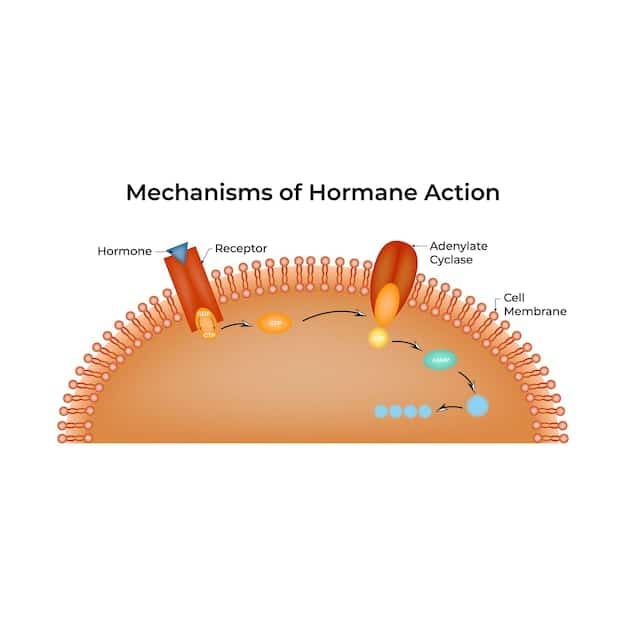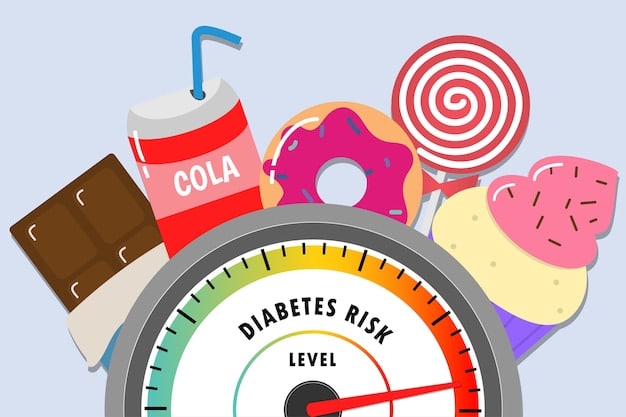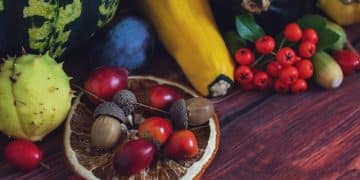The Truth About Sugar: Understanding Safe Consumption Limits

The Truth About Sugar: How Much Is Too Much According to the Latest Research? reveals that while sugar provides quick energy, excessive consumption is linked to various health problems, making moderation key to a balanced diet.
Unraveling the truth about sugar: How much is too much according to the latest research? can be a game-changer for your health. Let’s explore the science and guidelines to help you make informed choices.
Understanding the Basics of Sugar
Sugar is a fundamental component of our diet, but understanding its various forms and how our bodies process it is crucial for maintaining good health. Let’s delve into the essentials of sugar, its different types, and its metabolic pathways.
Types of Sugars
Sugars come in many forms, each with a unique chemical structure and impact on our bodies.
- Glucose: The primary sugar our body uses for energy, derived from the breakdown of carbohydrates.
- Fructose: Commonly found in fruits and honey, fructose is sweeter than glucose but processed differently in the liver.
- Sucrose: Table sugar is a combination of glucose and fructose, often added to processed foods and drinks.
- Lactose: Milk sugar, lactose, is a combination of glucose and galactose and requires the enzyme lactase for digestion.
How Our Body Processes Sugar
The body’s process of metabolizing sugar involves several steps to transform it into energy. Digestion breaks down complex carbohydrates into simple sugars, primarily glucose, which is then absorbed into the bloodstream. Insulin, a hormone produced by the pancreas, helps glucose enter cells to be used as energy. Excess glucose is stored in the liver and muscles as glycogen for later use. When glycogen stores are full, glucose is converted into fat, which can lead to weight gain and related health issues if this happens excessively.

Understanding these basics of sugar helps us to make informed decisions about our dietary intake and its impact on our health.
The Hidden Sugars in Your Diet
Many of us are aware of the obvious sources of sugar, like candies and sodas, but it’s the hidden sugars lurking in seemingly healthy foods that often lead to overconsumption. Recognizing these sneaky sources is essential for managing your sugar intake effectively.
Processed Foods to Watch Out For
Processed foods are notorious for containing added sugars to enhance flavor and extend shelf life. Here are some common culprits:
Sauces and Dressings: Ketchup, BBQ sauce, and salad dressings often contain high amounts of added sugar.
Soups: Canned soups, even savory ones, can have surprising amounts of sugar.
Breakfast Cereals: Many cereals, especially those marketed to children, are loaded with sugar.
Yogurts: Flavored yogurts frequently contain added sugars to improve taste.
Decoding Food Labels
Learning to read food labels effectively is a key skill in identifying hidden sugars. Look for terms like sucrose, glucose, fructose, corn syrup, and maltose, which all indicate added sugars. Pay attention to the “added sugars” line under the total carbohydrates section on the nutrition facts label. This line tells you exactly how much sugar has been added to the product during processing.
By becoming a savvy label reader and identifying the hidden sugars in your diet, you can make more informed choices and reduce your overall sugar intake.
The Recommended Daily Sugar Intake
Understanding the science-backed recommendations for daily sugar intake is crucial in maintaining good health. Health organizations provide guidelines to help individuals make informed decisions about their sugar consumption.
- American Heart Association (AHA): The AHA recommends no more than 6 teaspoons (25 grams) of added sugar per day for women and 9 teaspoons (36 grams) for men.
- World Health Organization (WHO): WHO suggests that adults and children reduce their daily intake of free sugars to less than 10% of their total energy intake. A further reduction to below 5% or roughly 25 grams (6 teaspoons) per day would provide additional health benefits.
How to Track Your Sugar Intake
Tracking your sugar intake can seem daunting, but with the right tools and strategies, it becomes a manageable task. Food tracking apps like MyFitnessPal, Lose It!, and Cronometer allow you to log your meals and automatically calculate your sugar intake. Be diligent in reading food labels and measuring portions accurately. Over time, you’ll develop a better understanding of the sugar content of common foods and be able to make healthier choices more easily.
By adhering to recommended daily sugar intake guidelines and tracking your consumption, you can protect your health and well-being.
The Health Risks of Excessive Sugar Consumption
Consuming too much sugar can have severe consequences for your health. From impacting your weight to increasing your risk of chronic diseases, the health risks associated with excessive sugar intake are significant. Let’s explore these in detail.
Weight Gain and Obesity
One of the most well-known effects of excessive sugar consumption is weight gain. Sugary foods and drinks are often high in calories and low in nutrients, leading to a calorie surplus. Fructose, in particular, is processed differently in the liver, which can promote fat storage. Over time, this can lead to weight gain and obesity, increasing the risk of other health problems.
Chronic Diseases
Excessive sugar intake is linked to a higher risk of several chronic diseases. Type 2 diabetes, heart disease, and non-alcoholic fatty liver disease are all associated with diets high in added sugars. High sugar intake can lead to insulin resistance, increasing the risk of type 2 diabetes. It can also raise triglyceride levels and increase inflammation, contributing to heart disease. Additionally, the liver’s metabolism of fructose can lead to fat accumulation, causing non-alcoholic fatty liver disease.

Understanding the health risks associated with excessive sugar consumption is crucial for making informed dietary choices and maintaining long-term health.
Strategies to Reduce Sugar Intake
Reducing your sugar intake can seem challenging, but with the right strategies and mindful choices, it is entirely achievable. Simple swaps, mindful eating, and creative alternatives can make a significant difference in your overall health.
Simple Swaps
Making simple swaps in your diet can significantly reduce your sugar consumption without sacrificing enjoyment. Here are a few easy changes you can make:
- Swap Sugary Drinks for Water: Replace sodas, juices, and sweetened beverages with water, sparkling water, or unsweetened tea.
- Choose Whole Fruits Over Juices: Whole fruits provide fiber and nutrients along with natural sugars, making them a healthier choice than fruit juices.
- Opt for Unsweetened Versions: Choose unsweetened yogurt, cereals, and other products over their sweetened counterparts.
- Make Your Own Sauces: Homemade sauces allow you to control the amount of sugar added, reducing hidden sugars from store-bought versions.
Mindful Eating
Practicing mindful eating can help you become more aware of your sugar cravings and make healthier choices. Pay attention to your body’s signals of hunger and fullness. Before reaching for a sugary snack, ask yourself if you are truly hungry or if you are eating out of boredom or stress. Slow down and savor your food, allowing your body time to register fullness. Mindful eating can reduce emotional eating and help you make more conscious food choices.
By implementing these strategies, you can effectively reduce your sugar intake and improve your overall health.
Sugar Alternatives and Substitutes
When trying to reduce sugar intake, exploring sugar alternatives and substitutes can be a helpful strategy. Natural sweeteners, artificial sweeteners, and sugar alcohols each offer unique benefits and considerations.
Natural Sweeteners
Natural sweeteners are derived from natural sources and can be healthier alternatives to refined sugar when used in moderation.
Stevia
Derived from the stevia plant, stevia is a zero-calorie sweetener that is much sweeter than sugar. It’s a popular choice for those looking to reduce their sugar intake without adding calories.
Honey
Honey contains antioxidants and has a lower glycemic index than sugar, meaning it raises blood sugar levels more slowly. However, it is still a form of sugar and should be used sparingly.
Maple Syrup
Pure maple syrup contains minerals and antioxidants. Choose pure maple syrup over pancake syrup, which often contains added sugars and artificial flavors.
Artificial Sweeteners
Artificial sweeteners are synthetic sugar substitutes that provide sweetness without calories.
- Aspartame: A widely used artificial sweetener, aspartame is about 200 times sweeter than sugar.
- Sucralose: Marketed as Splenda, sucralose is derived from sugar but is not metabolized by the body, making it calorie-free.
- Saccharin: One of the oldest artificial sweeteners, saccharin is calorie-free and much sweeter than sugar.
By understanding the various sugar alternatives and substitutes, you can make informed choices that align with your health goals.
| Key Point | Brief Description |
|---|---|
| 🍬 Hidden Sugars | Found in processed foods like sauces, cereals, and yogurts. Always check labels! |
| 📏 Daily Intake | AHA recommends no more than 6-9 teaspoons daily, WHO suggests less than 10% of total energy. |
| ⚠️ Health Risks | Excess sugar linked to weight gain, obesity, type 2 diabetes, and heart disease. |
| 🌿 Alternatives | Consider natural sweeteners like stevia, honey, or maple syrup in moderation. |
Frequently Asked Questions (FAQ)
▼
Look for terms like sucrose, glucose, fructose, corn syrup, and maltose on the ingredient list. Also, check the “added sugars” line under total carbohydrates on the nutrition facts label to see the amount of added sugar in grams.
▼
Consider natural sweeteners like stevia, honey, or maple syrup, but use them in moderation. Artificial sweeteners such as aspartame or sucralose can also be used as calorie-free alternatives.
▼
Consuming excess sugar can lead to weight gain, obesity, type 2 diabetes, heart disease, non-alcoholic fatty liver disease, and dental problems.
▼
Eat protein-rich foods, drink plenty of water, get enough sleep, and manage stress. Mindful eating and choosing whole, unprocessed foods can also help reduce cravings.
▼
No, natural sugars in fruits are generally not bad for you. Whole fruits provide fiber, vitamins, and minerals along with natural sugars, making them a healthier choice than processed foods with added sugars. Enjoy fruits in moderation as part of a balanced diet.
Conclusion
Understanding the truth about sugar: How much is too much according to the latest research? is crucial for maintaining a healthy lifestyle. By recognizing hidden sugars, adhering to recommended daily intakes, and implementing simple swaps, you can minimize the risks associated with excessive sugar consumption and promote overall well-being.





